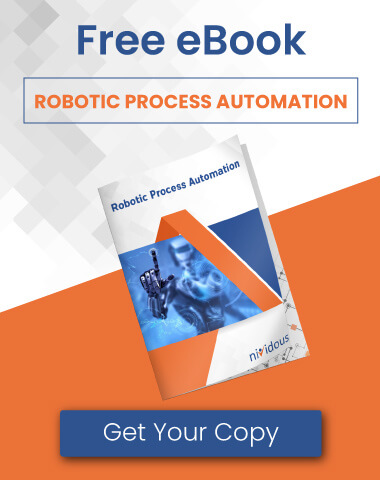If you’ve been active in corporate management over the past 30 years, you’ve probably heard of “Centers of Excellence.”
The history of this management model is a bit murky, but it clearly extends way beyond the business sphere. You’ll also find Centers of Excellence (CoEs) in universities, governments, and healthcare institutions.
In 2016, Salesforce published a blog that traces Centers of Excellence back to the manufacturing strategy boom of the 1980s. By 1998, the Academy of Management Perspectives was recommending Centers of Excellence as a “best practice of managing knowledge” for global service firms. They’re widespread today—and a CoE could help you bring meaningful change to your organization.
If you have questions about CoEs—starting at the top with “what is a Center of Excellence?”—you’re in the right place. Here’s an introduction to CoEs, along with some tips for building your own.
Looking for help setting up a Center of Excellence for Automation?
The Nividous professional services team can help. Our consultants guide you through every step of your automation journey, including the establishment of an ongoing CoE.
What is a Center of Excellence?
As we publish, Wikipedia describes a Center of Excellence as “a team, a shared facility, or an entity that provides leadership, best practices, research, support, and/or training for a focus area.”
At Nividous, we help companies set up Centers of Excellence for digital automation, process improvement, and related fields. Here’s our “Center of Excellence” definition:
A Center of Excellence is a cross-functional team committed to establishing and sharing best practices within a specific domain.
At its heart, a CoE is a collection of people from across the organization, tasked with compiling and sharing the information everyone else needs to make a project, technology or process successful. It’s not a management team. It’s not a new division. It’s more of a guiding hand, a blend of information authority, steering committee, and cheerleading troupe. And it’s a powerful tool for making new technologies and initiatives stick—which, as any manager can tell you, is harder than it looks.
So you could set up a Center of Excellence for Quality Assurance, a Center of Excellence for Compliance, or a Center of Excellence for Customer Experience. Or you might build a Center of Excellence around new technologies—technologies like intelligent automation, which completes business processes from end to end, and is available through the Nividous platform.
When should you employ the Center of Excellence model?
Is a CoE right for your business? It may be, if you run into any of the following scenarios:
- You’re introducing a new technology or business practice that you’re sure will deliver results, but less sure about how to help it take off.
- You’ve already implemented a new technology or strategy, but the results aren’t living up to your projections.
- A new technology or business initiative showed promise, but stalled out from poor stakeholder buy-in.
The fact is, change is hard. New software can revolutionize the way you run your business, but it won’t work unless the whole operation commits to using it—and people won’t use it unless they understand how and why it can help. Your Center of Excellence for Automation is there to get all your stakeholders on board, supporting them as an improvement ripples throughout your organization.
How do you implement a Center of Excellence?
Centers of Excellence are horizontal institutions, made up of peers from different parts of your business. But to be successful, they must be empowered to take action, which requires a commitment from company leadership. A strong mandate from senior management is an essential prerequisite for successful CoEs—which themselves may be necessary to drive success as you improve business processes.
Managers have to give the CoE broad support, and access to all areas of the business. (That also means clearing time in their schedules to devote to CoE activities.) Invite key stakeholders within your company to join the CoE; make sure they understand and agree on specific goals; then give them the resources they need to share that understanding with everyone at your company.
A CoE can improve your odds of success for any significant operational change. But it’s not always easy to get results. Here are a few things to keep in mind as you launch your first Center of Excellence:
- One of the major purposes of a CoE is to get full stakeholder buy-in. That takes time; positive momentum is one of those things that grows slowly at first, then all at once. In short, don’t give up too early.
- Members of the CoE must show true devotion to the cause. Placeholders won’t help. Choose a team that will engage, participate, and even inspire.
- A CoE is almost a marketing force, albeit an entirely internal one. Messaging is key. Distill goals, guiding principles, and best practices into short, repeatable phrases, almost like taglines or mottos. Tell the story of how your focus area can make positive change.
- Integration with key business units is essential (that’s why you want CoE members from across the organization). If a CoE becomes a silo that is also an echo chamber, it can lose touch with core business needs. Instead, keep the CoE engaged; share information; create visibility; and make CoE members available to employees who have questions about the new initiative.
You might know Nividous through our product, the Nividous platform, which goes beyond simple task automations to help companies automate complex business operations from beginning to end.
So while we’re experts in process automation, we’re also experts on digital transformation, and we offer a full range of professional services for success in automation across the project lifecycle:
- That starts with discovery, in which our analysts help you find the best processes to automate.
- We also help with implementation, ensuring a quick and effective launch.
- We provide support and maintenance for automation solutions.
In addition to technical support, we also help companies set up Centers of Excellence for automation and process improvement initiatives. The Nividous professional services team works with you to build a CoE that will create best practices, define a governance model, identify Key Performance Indicators (KPIs), and measure the value of automation across the business lifecycle.
Need help creating a Center of Excellence to bring digital transformation to your business?
Reach out for a free consultation with the experts at Nividous.





